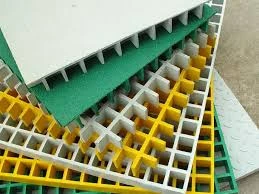loading...
- No. 9, Xingyuan South Street, Dongwaihuan Road, Zaoqiang County, Hengshui, Hebei, China
- admin@zjcomposites.com
- +86 15097380338
- Welcome to visit our website!
fiber reinforced polymer rebar
Fiber Reinforced Polymer Rebar Revolutionizing Construction
In recent years, the construction industry has sought innovative materials to enhance structural integrity, durability, and sustainability. One such advancement is Fiber Reinforced Polymer (FRP) rebar, which is poised to revolutionize the way we build. Unlike traditional steel rebar, FRP rebar offers a combination of lightweight properties, resistance to corrosion, and superior strength, making it an attractive solution for various applications.
What is Fiber Reinforced Polymer Rebar?
Fiber Reinforced Polymer rebar is composed of a polymer matrix reinforced with fibers, typically glass, carbon, or aramid. This composition results in a material that is not only strong but also non-corrosive, providing considerable advantages over conventional steel rebar. FRP rebar can be manufactured in various shapes, sizes, and lengths, making it adaptable for different structural requirements.
Advantages of FRP Rebar
1. Corrosion Resistance One of the most significant benefits of FRP rebar is its resistance to corrosion. In environments where steel is prone to rust—such as coastal areas, chemical plants, or highways—FRP provides a long-lasting alternative. By eliminating the risk of corrosion, FRP rebar can extend the lifespan of structures, reducing maintenance costs.
2. Lightweight FRP rebar typically weighs about one-quarter that of steel rebar, making it significantly easier to handle and transport. This lightweight characteristic not only reduces transportation costs but also simplifies the installation process on-site. Labor costs can be lowered as a result of simpler handling and fewer safety concerns during installation.
3. High Strength-to-Weight Ratio With a high strength-to-weight ratio, FRP rebar can offer comparable strength to that of steel while being much lighter. This attribute allows engineers to design more efficient structures, using less material without compromising safety or durability.
4. Electrical Insulation Unlike steel rebar, which can conduct electricity, FRP rebar is an insulator. This property is valuable in specific applications, such as structures near electrical sources or where electromagnetic interference must be minimized.
fiber reinforced polymer rebar

5. Adaptability FRP rebar can be manufactured to suit particular needs, making it versatile for various construction projects, from bridges and parking garages to marine structures and retaining walls. Its adaptability allows for customization in accordance with the specific structural performance requirements.
Applications of FRP Rebar
The application of Fiber Reinforced Polymer rebar spans multiple sectors in construction. In highway and bridge construction, where exposure to de-icing salts and moisture is prevalent, using FRP rebar can significantly enhance longevity. Its durability is also beneficial in marine environments, where structures face constant exposure to seawater.
Additionally, FRP rebar is increasingly being utilized in precast concrete elements, making it easier to transport large components that require less weight. The aerospace and automotive industries are also exploring the use of FRP materials due to their lightweight and high-strength characteristics.
Challenges and Considerations
Despite its numerous advantages, the adoption of FRP rebar is not without challenges. Its initial cost is generally higher than steel rebar, which can deter some contractors and project managers. However, when considering the lifecycle cost savings resulting from reduced maintenance and increased longevity, FRP rebar may be more economical in the long run.
Moreover, there is still a degree of uncertainty regarding the long-term performance of FRP in various environmental conditions, and ongoing research is essential to fully understand its behavior over time.
Conclusion
As the construction industry continues to evolve, Fiber Reinforced Polymer rebar emerges as a promising alternative to traditional steel rebar. While the challenges of initial costs and long-term performance assessments remain, the numerous benefits—ranging from corrosion resistance to adaptability—make FRP rebar a compelling choice for future construction projects. By adopting innovative materials like FRP rebar, the industry can improve sustainability, reduce maintenance costs, and create structures that stand the test of time.
-
The Rise of FRP Profiles: Strong, Lightweight, and Built to LastNewsJul.14,2025
-
SMC Panel Tanks: A Modern Water Storage Solution for All EnvironmentsNewsJul.14,2025
-
GRP Grating: A Modern Solution for Safe and Durable Access SystemsNewsJul.14,2025
-
Galvanized Steel Water Tanks: Durable, Reliable, and Ready for UseNewsJul.14,2025
-
FRP Mini Mesh Grating: The Safer, Smarter Flooring SolutionNewsJul.14,2025
-
Exploring FRP Vessels: Durable Solutions for Modern Fluid HandlingNewsJul.14,2025
-
GRP Structures: The Future of Lightweight, High-Performance EngineeringNewsJun.20,2025
